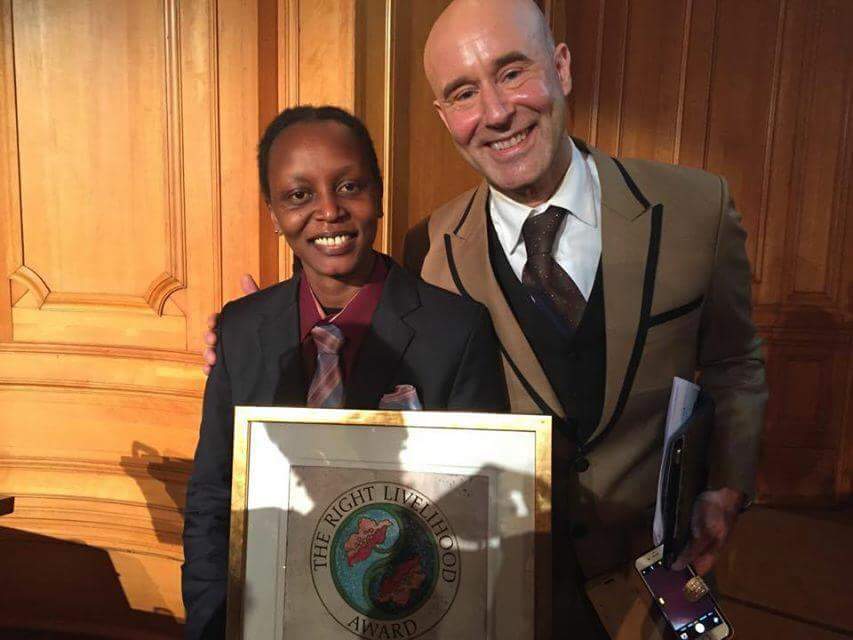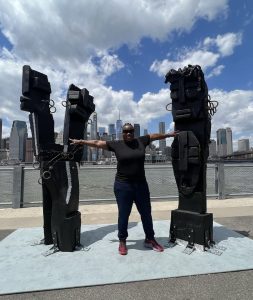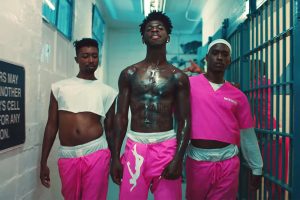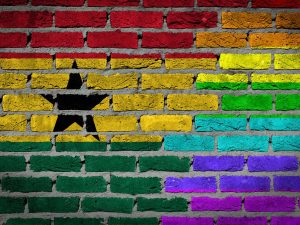Your excellencies, Members of Parliament, Ladies and Gentlemen:
The celebrated Nigerian novelist Chinua Achebe once said that we cannot trample upon the humanity of others without devaluing our own. I believe in the possibility of a world where we as human beings can see ourselves as one and simply as human as one another. A world where we respect and understand each other, where we work together to break structures that hinder our personal freedoms and rights to live happy, peaceful and sustainable lives.
We still have a long way to go before we get to this world we desire. LGBTI persons in many parts of the world continue to be confronted with threats, intimidation and discrimination, and activists working to promote respect for human rights seem to be confronted with consistently shrinking spaces. What do we, as people, do in such a situation? As individuals and as a society, we all share the same desire to live peacefully and be fundamentally free. It’s the time to reaffirm and adhere to our basic character and uphold the essence of all the international instruments that were drawn up with the intention of reminding us of how we are supposed to peaceful coexist as human beings.
In all our individual capacities, we have a duty to live and let live, and we must boldly confront oppression in all its manifestations. This is what my colleagues and I have tried to do in Uganda. It is why I founded the NGO Freedom and Roam Uganda –FARUG- in 2003, to counter homophobia in my country and sensitize our people on the issues of sexual orientation and gender identity. Our campaigns used different mediums to touch every segment of society; for example, the 2011 Hate no More campaign reached out to the mass media in Uganda with the aim of eliminating misconceptions and shattering myths about same-sex relationships. The Break the Chains campaign used newsletters to unearth the real life experiences of LGBTI women in 2007. After stepping down as head of FARUG in 2014, I launched the Kuchu Times, a platform that uses television, radio, internet and print material to inform people on LGBTI issues. Within this platform lies the Bombastic magazine, launched in 2014 and funded through crowdsourcing, which shares accounts of the lives of LGBTI Ugandans. This magazine aims to convey a simple truth – that we are all more similar than we are different. Bombastic has been downloaded more than 2 million times. Believing fervently that public spaces should be enjoyed by all, we continue to organize the Pride Uganda festival every year, to reaffirm the simple message enshrined in Article 1 of the Universal Declaration of Human Rights – that all human beings are born free and equal in dignity and rights.
Video Courtesy
As individual efforts to promote respect for human rights and make it a reality for all can never be enough; your support and solidarity to our cause is welcome. In Uganda over time, we have managed to strengthen our visibility as LGBTI persons by working to create a space safe for everyone. The challenges are still prevalent but we have come too far to give up. At the continental level, our fight has seen a growing trend of persons organizing and rising up against the suppressing hand of the authorities. This is a trend we can all hope will remain unextinguished until there is acknowledgment of all human rights as indivisible, interdependent and inalienable; from LGBTI rights to all other sexual, reproductive and health rights, from the rights of migrants and refugees and all other rights.
Throughout my life, and in spite of all the violence and threats I have been subject to, I have never shied away from using the rule of law and the judiciary to hold human rights violators to account and give a measure of redress to victims. Court verdicts have been helpful in making inroads within public opinion and slowly entrench the notion that LGBTI people also have inviolable rights guaranteed by the Ugandan constitution. Yet, time and experience has proven to me that the more allies we bring into our struggle and the greater strength of numbers we can mobilize, the closer we move towards the awakening of mass consciousness required to bring about lasting and tangible change. To this end, I have engaged in a number of coalitions to advance and realize human rights in Uganda, including the women’s movement, Coalition of African Lesbians and the Civil Society Coalition on Human Rights and Constitutional Law – which includes more than 60 Ugandan human rights organizations. Last year, I joined my nine brave fellow petitioners to challenge the Anti-Homosexuality Act passed in February 2014, which imposed further sanctions to criminalize homosexuality and trample upon LGBTI rights. Our petition saw this law being annulled by the Constitutional Court of Uganda in August 2014 on a technicality. Even though specter of this draconian and unjust law being reintroduced continues to hang over us, I am confident from our experience that my colleagues and I are ready to meet the challenge. In the meantime, I continue to build alliances and broaden our movement for justice for all; I am presently working with HIV/AIDS victims and women’s groups to challenge provisions in the HIV/AIDS Control and Prevention Act 2014 that stigmatizes the LGBTI community. Believing that our struggle is global in scope, I work at the international level with the UN Human Rights Council in Geneva, at the regional level with African Commission on Human and Peoples’ Rights in The Gambia, and nationally with government ministries.
“In all our individual capacities, we have a duty to live and let live.”- Kasha N. Jacqueline
Martin Luther King said that faith is about taking the first step even when you can’t see the whole staircase, and that it is only in the darkness that we see the stars. My friends, history shows us that seemingly unsurmountable challenges to equality – the institution of slavery, women’s suffrage, colonial rule and apartheid, have been contested, challenged and repudiated. I believe that through court judgments, through advocacy and through sensitizing our people on the full meaning of fundamental human rights, we shall overcome and that the day is not far when discrimination against people based on who they love will also be left behind in the wastebasket of history. Uganda may be a distant country but know that this Award gives courage, strength and vindication to all Ugandans working for universal human rights against all odds. I would like to accept this Award, on behalf of all those who have given their life for the cause of advancing LGBTI rights in Uganda and around the world, particularly my friend and colleague David Kato, who was murdered in 2011 while working for a better world for us all. The change we seek can only be achieved through tolerance, understanding, a shift in mindset, and a breaking of all barriers to equality, socio-economic and political in nature. I invite you all to join me and be a part of this change.
Thank you.




